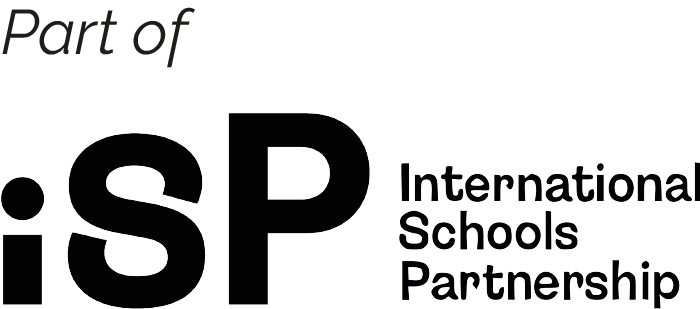EARLY CHILDHOOD EDUCATION
When we think about Early Childhood Education, it is important to understand that this educational stage encompasses the phase of human development referred to as the first stage of education, which spans from 0 to 6 years of life.
It is worth noting that this stage is crucial for the acquisition and establishment of fundamental skills learned by children. It is precisely during this period that a series of behaviors and interactions with the environment and the people around them are initiated, which play a key role in child development.
Thanks to the incredible brain plasticity evident in children, particularly during this phase, it is a critical period for personality formation, value development, and the sharpening of curiosity.
Therefore, it is important to recognize the significance of the pedagogical work carried out in Early Childhood Education, as the stimuli received during early childhood have a profound impact on an individual’s adult life.
With this in mind, the Brazilian International School offers an Early Childhood Education program in São Paulo, focused on the comprehensive development of children. The institution introduces bilingual education from the time students enroll, starting from 1 year old.
Pedagogical Approach for Early Childhood Education
The Brazilian International School bases its pedagogical approach for Early Childhood Education on three key pillars: CARE, PLAY, and EDUCATE. Children learn by playing and when they are well cared for, welcomed, and supported.
The acquisition of a second language in early childhood has a positive impact on a child’s academic and social development. Bilingual children show early development and become cognitively more flexible compared to monolingual children.
Interdisciplinarity plays an important role in how the Brazilian International School conducts this stage of basic education. The curriculum is delivered through projects that guide activities in different areas of knowledge, designed according to students’ interests and requests, while still aligning with the official curriculum.
Care
At the Brazilian International School, the focus on welcoming starts from the moment families first contact the Pedagogical Team, ensuring that adapting to the new school context and new references becomes a meaningful experience in children’s lives.
In addition to emotional care, physical health is a priority in Early Childhood Education. Paying attention to balanced, healthy meals and hygiene practices ensures that children can fully engage in their educational experiences.
Play
The phrase “children learn through play” is widely accepted and taken very seriously in all of the pedagogical proposals in Early Childhood Education at the Brazilian International School.
Play is an inherent phenomenon in children’s experiences. A child who plays develops holistically. Therefore, we guarantee playful spaces and proposals that encourage students to explore their creativity, curiosity, and interactions with nature, expanding their understanding of the world.
Furthermore, play in the context of bilingual education at the Brazilian International School also promotes the acquisition and expansion of English vocabulary through guided games and cultural activities. Children learn the language by playing and living it. Learn by playing and living!
Educate
Considering the necessary tripod to ensure the sustainability of the pedagogical work in Early Childhood Education, it is important to highlight that the “content and experiences” proposed by the school are based on the respect and guarantee of Learning Rights and Fields of Experience outlined in the National Common Curriculum Base (BNCC).
Based on the socio-interactionist approach, where the environment and the people who are part of students’ school life become “mediating bridges” in their knowledge construction, we work through interdisciplinary projects that guide cognitive experiences and discoveries.
Specific Objectives of Early Childhood Education and Fields of Experience at the Brazilian International School
In line with the Fields of Experience defined by the BNCC, the school focuses its daily work in Early Childhood Education on fostering each child’s growth while respecting their individuality. Empathy, for example, is developed from C1 through projects where students put themselves in others’ shoes, improving their social interactions.
In daily pedagogical practice and extracurricular activities, movement is a priority, helping develop body awareness and an understanding of one’s limits and potential. Through circuits, directed playgrounds, and traditional games, educators work consistently on these concepts.
The experience of different artistic expressions broadens children’s means of self-expression, especially when stimulated early in life. Exploring lines, sounds, colors, and shapes in a liberating experience allows students at the Brazilian International School to create their own works and develop critical and aesthetic thinking.
Logical reasoning and problem-solving are fostered through both abstract and concrete games. From the children’s own suggestions and questions, pedagogical projects arise that explore concepts of time, natural phenomena, and sociocultural themes.
The literacy process begins well before the reading and writing of the first words. The Brazilian International School conducts reading circles, storytelling, and dramatizations in both Portuguese and English to enhance orality, comprehension, imagination, and vocabulary development.
Reading, mediated by the school’s educators, serves as a guiding thread for introducing students to the world of writing.
Arts, Theater, and Music
Art should be recognized as a multicultural expression and not limited solely to drawing or painting. At the Brazilian International School, music, dance, visual arts, theater, crafts, performing arts, cinema, literature, poetry, and philosophy are all part of the knowledge-building process for our students.
Given the importance of art in education, it is crucial that contact with “artistic creation” begins from an early age. The Brazilian International School is committed to implementing high-quality arts education, always connected to other disciplines. The commitment to the humanistic and holistic development of each student starts in Early Childhood Education.
Music lessons at the Brazilian International School also play an important role in students’ knowledge development, aiming to awaken and develop musical taste while fostering sensitivity, creativity, rhythmic sense, imagination, concentration, socialization, and emotional bonding.
At the stage when students first come into contact with music, classes are conducted in a playful and free manner. The proposed activities stimulate body awareness, exploration of gestures and rhythms, encouraging artistic expression through the body as well.
Musical exploration is harmonized with the use of other senses like vision and touch, essential for a more complete assimilation. As children grow, the practices adapt to new stages and abilities, including rhythmic activities using their own bodies (running, jumping, clapping, etc.).
This understanding of the body is also crucial in the school’s English theater classes, where students are encouraged to communicate using their own physicality. These moments emphasize facial and vocal expressions, various movements, and the constant use of imagination.
The minimal use of objects (in most cases) intensifies the use of “make-believe,” where students begin the process of English language acquisition through repetitive speech and bodily movements. The Brazilian International School offers artistic connections that inspire students through co-creation and spontaneity.

Physical Education
In Early Childhood Education, Physical Education plays a very important role. Children at this stage are in full development of motor, cognitive, emotional, and social functions, transitioning from individualism to group experiences. The space created by these classes is ideal for promoting learning through playfulness.
Games and playful activities provide learning through experiences with the body, materials, and social interaction. This way, children discover themselves, explore their limits, build relationships with others, and express their feelings.
Library
Our library is filled with modern and comprehensive materials. Through playful strategies, students are encouraged to develop a love for reading and the proper use of books.
Throughout the year, we develop literature projects based on meticulous work that introduces students to various works or great international and national authors, from Oscar Wilde with the moving “The Selfish Giant,” to Julia Donaldson and the iconic “The Gruffalo,” and the renowned “Sítio do Pica-Pau Amarelo” by Monteiro Lobato.
Nature Space
Environmental awareness, as important as it is necessary, is developed in the Nature Space. The proposed activities are related to fostering sustainable behavior, learning about the garden, plants, and cultivating and observing the productive cycle up to the harvest and consumption or transformation of the food.
Cooking
Good eating habits are nurtured from an early age. During cooking classes, children have the opportunity to prepare and taste different foods and recipes, often using what is produced in the garden.
They observe how food is prepared and the physical changes that occur during this process. They feel the taste, smell, and texture and can express whether they liked it or not.
Technology
A complete education today also includes an engagement with technology. With that in mind, this activity aims to integrate this resource into pedagogical projects. C4 and C5 students, for example, work directly with the Matific platform, which teaches Math in a playful way.
The STEAM methodology (Science, Technology, Engineering, Arts, and Mathematics) for problem-solving is one method of integrating technology with different fields of knowledge.
Classes alternate between using iPads and hands-on activities. This way, students connect with the real world while also using their volitional impulses.




